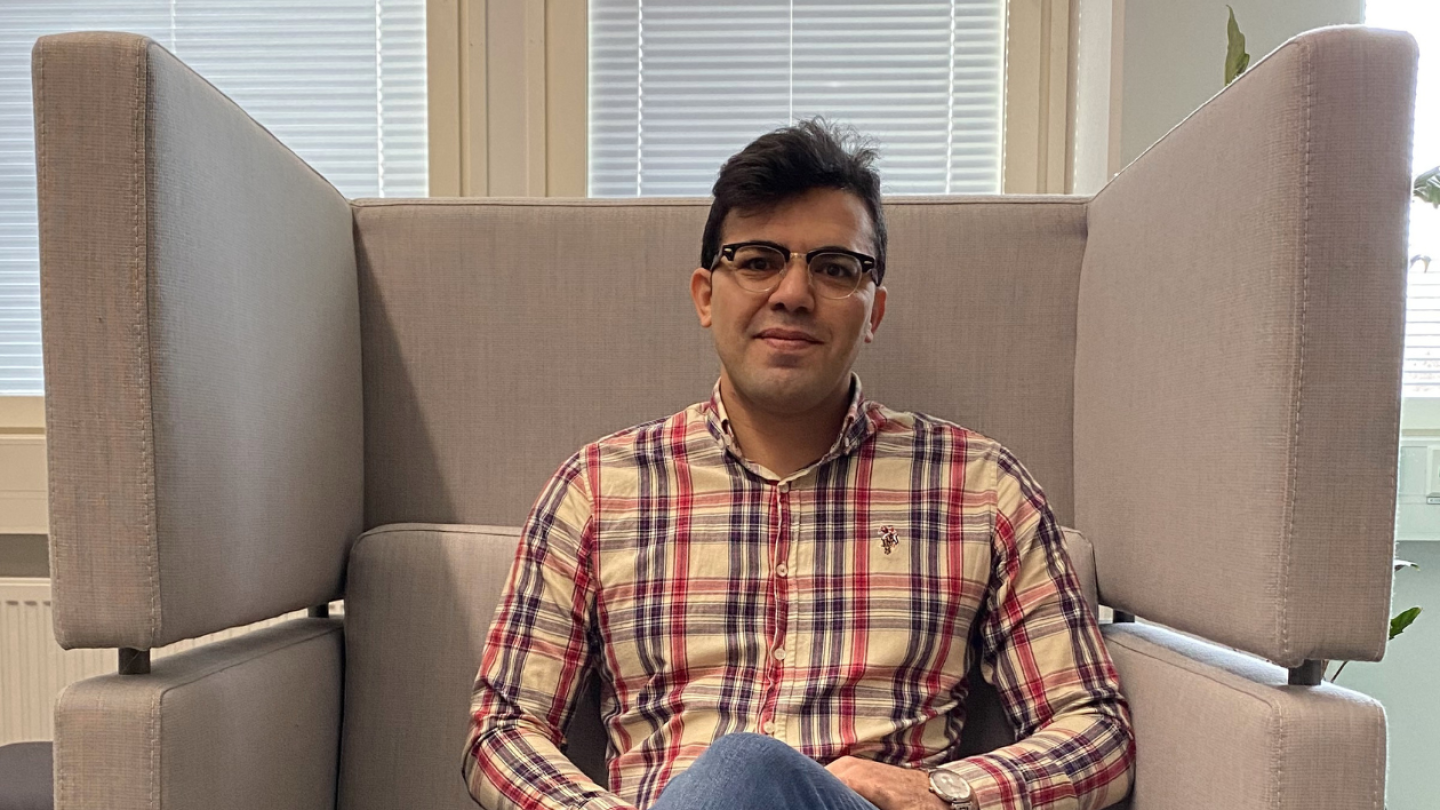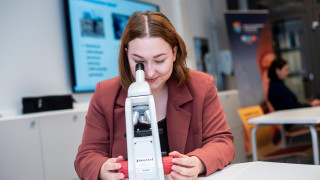My research benefits industry, consumers and the planet

The series Research in the Spotlight allows researchers from Kokkola University Consortium Chydenius to discuss their current research activities.
Hossein Rostami has a Ph.D. in Electrochemistry, and he a postdoctoral researcher at the Kokkola University Consortium Chydenius (University of Oulu). He works on Li-ion and Na-ion batteries in the Research Unit of Sustainable Chemistry. His research combines his knowledge with his passion for improving sustainable energy solutions.
What are you trying to solve with your research?
Our research focuses on creating eco-friendly materials for Li-ion and Na-ion batteries. The main challenge is to enhance battery performance by making them last longer, charge faster, and reduce their environmental impact. Many current batteries rely on rare and expensive materials, and their production produces significant waste. Our goal is to develop sustainable, high-performance battery materials for a cleaner and more efficient energy future.
How does the research answer these questions?
We use a comprehensive approach by improving the synthesis process, utilizing eco-friendly materials, and optimizing coatings and doping. These techniques improve battery stability, conductivity, and lifespan while reducing environmental impact. We also explore how different materials interact to make batteries safer, more efficient, and environmentally friendly.
What do the results of the research specifically concern - and in what way?
Our research benefits battery manufacturers, the electric vehicle industry, and renewable energy storage systems. By developing better materials, manufacturers can produce longer-lasting, safer batteries that use fewer rare or harmful resources. This improves electric vehicle performance and makes renewable energy storage more efficient. For everyday users, it means longer battery life, less electronic waste, and a lower environmental impact. In the end, everyone benefits—industries, consumers, and the planet.
What is the significance of the research results economically, socially, socially or politically?
Economically, sustainable battery materials lower costs and make energy storage more affordable. Socially, better batteries promote clean transportation and renewable energy, reducing pollution and dependence on fossil fuels. Environmentally, our research helps cut down harmful mining and supports greener battery production. Politically, advancing battery technology strengthens energy security and aligns with global sustainability goals.
Would you like to tell something else about your work as a researcher?
Collaboration with a great team has been essential in overcoming challenges and driving innovation. Their support and expertise have greatly contributed to the success of my work.





